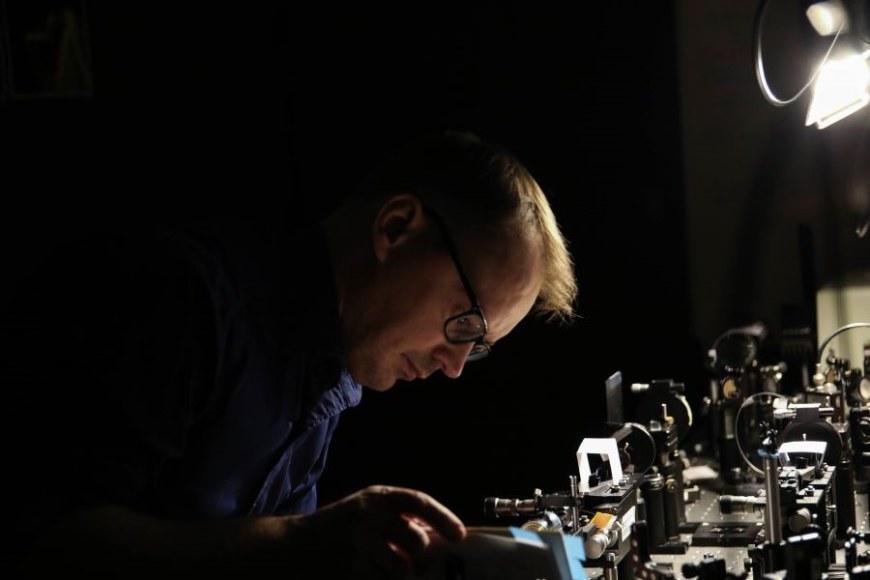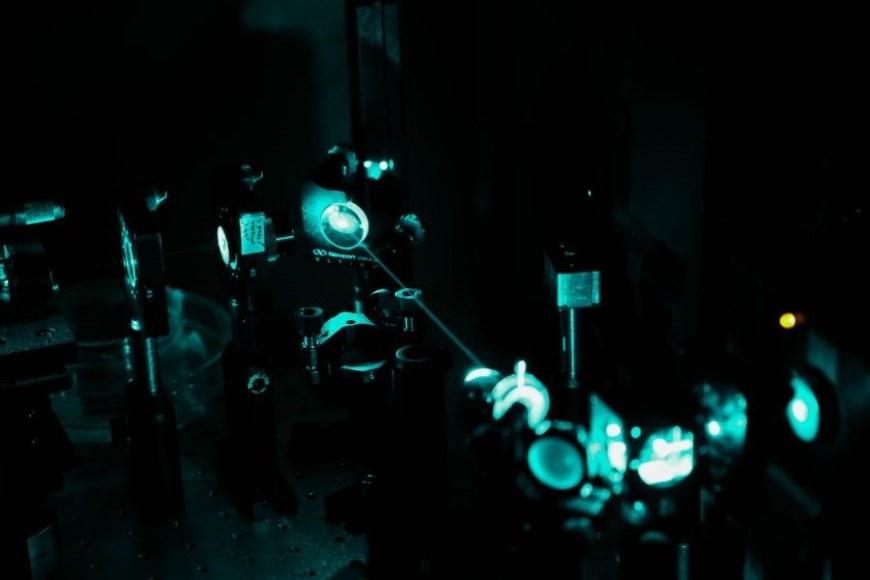Photonics is key to the technology of the future

This article was originally published in Unit, the magazine of Tampere Universities.
Light underpins all modern technology, and photonics components are deployed in countless applications due to their superior speed, precision, reliability and safety compared to conventional solutions.
New photonics applications will emerge in the near future in various fields, such as environmental monitoring and medicine. Among other things, it will be possible to replace blood tests with easy-to-use portable personal sensors.
Photonics – the science of light – is a subfield of physics. It is one of the key enabling technologies (KETs) that are seen as the most important building blocks for future technological innovation across all industrial sectors. As manufacturers are approaching the limits of what can be achieved through conventional technology, photonics is creating exciting new opportunities.
“Photonics is tomorrow's technology. The 20th century was the age of electronics, but photonics has ruled supreme since the beginning of the new millennium,” says Goëry Genty, professor of photonics at Tampere University.
Genty has a passion for photonics. He is fascinated with the possibility of unravelling and controlling the mechanisms that underlie the behaviour of light.
“The physical phenomena behind photonics are extremely interesting. An in-depth understanding of these phenomena is the key to making further progress in photonics,” he explains.

Photonics improves our quality of life
Photonics is everywhere: it enables us to talk on mobile phones, send emails from laptops and switch on lights at night. Smartphones, telecommunications, safety cameras, high-efficiency solar panels and energy-saving light bulbs are only the tip of the iceberg.
“Photonics improves our quality of life and is ubiquitous but often invisible. Without photonics, the world would be a very different place,” Genty points out.
Finland has a long history of research in photonics. In the 1990s, Nokia’s success helped lay the foundation of Finland's high-tech reputation, which attracted researchers from all over the world. The Academy of Finland has recently selected photonics for its Flagship Programme.
The Photonics Research and Innovation Flagship (PREIN) aims to address societal challenges and deliver significant benefits to society.

Happy accident
Genty spent his formative years in the Bordeaux region of France and came to study photonics as the result of a happy accident. While contemplating his options as an 18-year-old, he became intrigued by the behaviour of light. Photonics technologies had radically increased the speed and reliability of the internet at the time, and it made sense of jump on the bandwagon.
“Light is visual and has vast untapped potential. I found that interesting,” he says.
As an internship abroad was a mandatory part of his degree, Genty spent a period of time studying at the university formerly known as Helsinki University of Technology in 1997. It was his first visit to Finland, and he quickly became enthralled by the country. When he was offered the opportunity to complete a doctoral degree in Helsinki after completing his master’s degree, he accepted without hesitation. Later on, he moved to Tampere to further his research career, and he has since been promoted to full professor.
Greater together
The multidisciplinary PREIN cluster, which is led by Genty and coordinated by Tampere University, also includes the University of Eastern Finland, Aalto University and the VTT Technical Research Centre of Finland. PREIN covers the entire photonics value chain, ranging from basic research through technology and product development to market entry.
“It is rewarding that photonics is perceived as one of the most promising areas of scientific research in Finland and that the potential of photonics to drive economic growth and improve well-being is understood,” Genty notes.
The competition for research funding is fierce among research groups that explore similar topics around the world. Resources are limited and everyone wants to be the best. Genty is pleased that the PREIN flagship places great emphasis on the power of collaboration.
“Together we are greater. It makes more sense to work together than go head to head,” he states.
Today's learners are tomorrow’s professionals
The demand for photonics professionals will grow in the future. As the father of a 13-year-old daughter, Genty is a strong supporter of science events for children, and he wants to encourage children’s interest in science. Today's learners are, after all, tomorrow’s professionals.
“I am looking to increase awareness of photonics among children. It is especially important to get more girls interested in science; it is not a male stronghold,” says Genty.
Photonics is expected to create more than 7,000 new jobs in Finland and have a significant impact on the national economy. PREIN’s first funding period has already begun, and expectations are running high.
“This is the beginning of a great adventure, and I am thankful to be part of it,” Genty says.
Photonics Research and Innovation Flagship (PREIN)
- PREIN is one of six flagship projects selected by the Academy of Finland.
- The goal of the Flagship Programme is to support high-quality research.
- This multidisciplinary competence cluster is led by Professor Goëry Genty and coordinated by Tampere University.
- The partner institutions are Tampere University, the University of Eastern Finland, Aalto University and the VTT Technical Research Centre of Finland.
- The first grant period runs from 2019 to 2022. It may be extended until 2026.
- The renewal of the grant depends on the results of a mid-term evaluation.
- PREIN has a budget of more than €8 million for 2019–22.
Author: Anna Vättö






